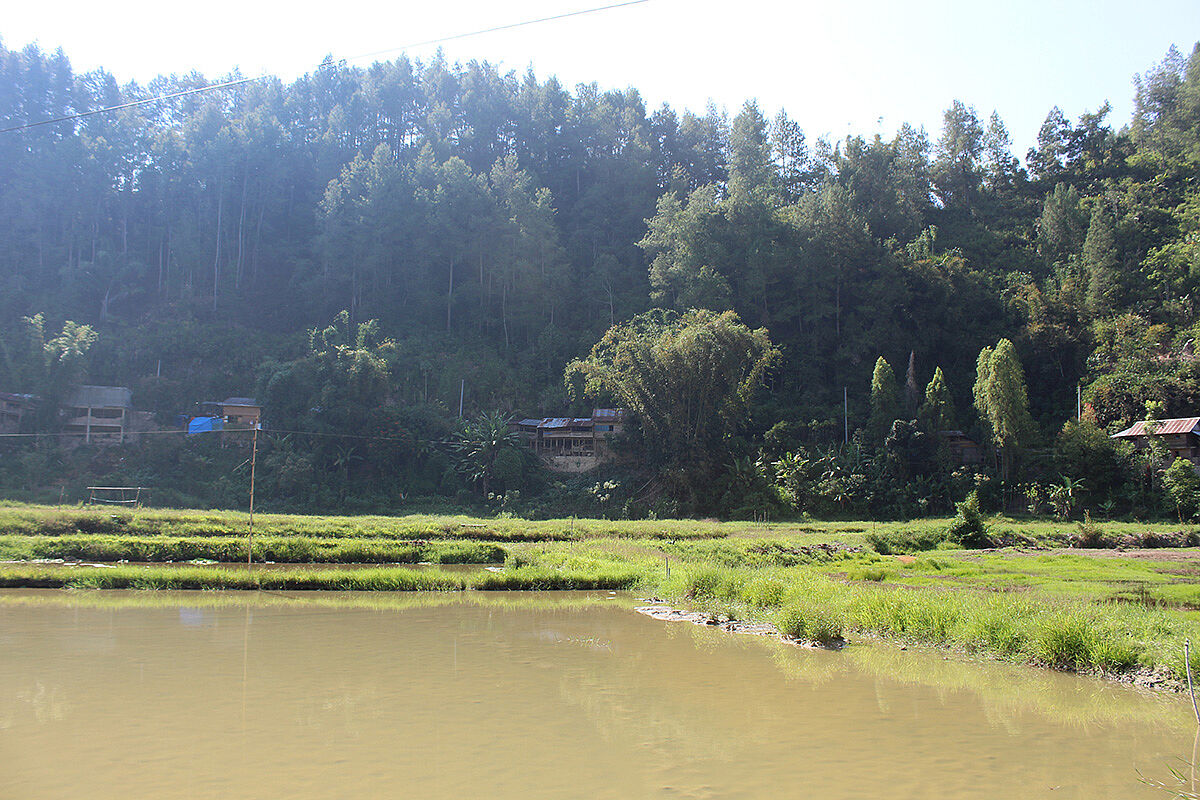Evangelische Bank eG
IBAN: DE85 5206 0410 0000 0001 24
BIC: GENODEF1EK1
Indonesia: Freshwater Fish Farming
The district of Mamasa is located inland in the Indonesian province of West Sulawesi. Although its landscape is hilly and rich in water, it is distant from the coast and major cities. Many families work in the rice fields, but their livelihoods are precarious. In search of additional income, some people clear forest land, which fuels soil erosion. In order to break the cycle of poverty and environmental destruction, the Toraja Mamasa Church (GTM) has launched a special initiative: sustainable freshwater fish farming to provide a new source of income for families of smallholders.
At the newly established training centre, participants learn how to successfully raise and market fish step by step, from preparing a pond to proper care and feeding, and selling their harvest at local markets. In the process, they acquire practical skills and gain confidence as they help their communities unlock new sources of income.
Once they have been trained, these “multipliers” share their knowledge within their villages, helping others to set up small fish farms and distributing young fish to rice farmers. The conditions are favourable for this: the “Mina Padi system” is used, which is a traditional combination of rice cultivation and fish farming in irrigation channels. For farming families, raising fish in the rice fields provides a reliable additional source of income. These extra earnings make it possible to send children to school, pay for medical care and ensure adequate nutrition. At the same time, the incentive to clear forest land diminishes, as each new fishpond provides a sustainable alternative that benefits both people and nature.
By donating to the “Combating Poverty through Sustainable Freshwater Fish Farming” project, you are helping families in Mamasa to overcome poverty through their own efforts, while also preserving the region's unique natural environment.
Indonesien
More than 10% of the world's population depend on fishing for their livelihoods.

Help for the environment and families
The fish farming project enables the GTM to make a significant contribution towards protecting the environment while providing many families with an income at the same time. You too can help by donating to the project “Combating poverty through sustainable freshwater fish farming”.
The project strengthens families in Mamasa by teaching them sustainable freshwater fish farming techniques. At the training centre, participants learn the necessary knowledge and skills for aquaculture. Trained individuals then pass on their expertise and support the establishment of local fish farms. The project aims to increase incomes, reduce poverty and curb deforestation, which is harmful to the environment.
In the new training centre, specialists in freshwater fish farming are being trained. They pass on their knowledge as multipliers in local communities and teach farmers how to raise fish in rice fields. Families rear young fish and sell them at local markets – step by step creating a sustainable new source of income.
The region of the Toraja Mamasa Church (GTM) lies in the remote high valley of Mamasa where about 80% of the population is Christian. As the largest religious community in the region, the GTM regards itself as responsible for helping to shape social coexistence. This is why it is involved in many things such as youth work and adult education. The GTM is also committed to maintaining and improving the region's infrastructure by running a number of different schools, an agricultural development centre and a hospital.
We are pleased to hear that you are interested in this project. If you have any general questions, please use the contact form below. We are also happy to help you personally if you have any questions or require further information – by phone or by E-mail.
Djoko P. A. Wibowo
Liaison Secretary Indonesia
+49 711 636 78 -36